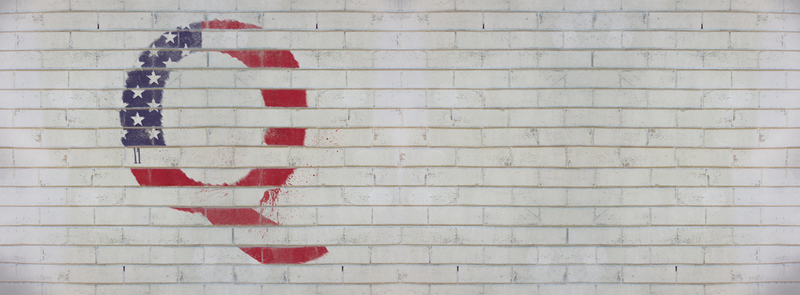Tips For Talking To The Conspiracy Theorist In Your Life

Here’s a scenario you may have found yourself in recently: You open up Facebook or Twitter, and someone you know is posting about a conspiracy theory. You wonder, Do I say something? Is there any convincing them otherwise?
For Jenny Fournier, it’s her aunt.
“She got sort of really into the QAnon piece, and she would call my mom, like, at the beginning of this COVID stuff and say, ‘It’s OK, none of it’s real. I don’t even need to panic,’” Fournier said.
Fournier lives in Cheyenne, Wyoming. She says when her aunt brings things up like this, she usually ends up diverting the conversation. But still, she worries.
“It’s gotten to the point where I think she’s actually making life decisions based on it,” she said.
Joe Uscinski is a political scientist at the University of Miami who studies conspiracy theories. He says the pro-Trump QAnon conspiracy theory started with a person who claimed in an anonymous chat room they were “helping Trump battle the deep state, which is comprised supposedly of satanic sex trafficking pedophiles and baby eaters.”
Conspiracy theories aren’t a new phenomenon. But what makes QAnon different, Uscinski says, is that it doesn’t focus on one event in the past. It’s more of a worldview. This can lead to some deeply entrenched and dangerous views – like the ones Jenny Fournier deals with with her aunt.
“Remember that tsunami that happened in Japan?” Fournier said. “The whole premise for her is that these people, they know about climate change. So she thinks that they, like, use satellites and, like, vibrations to the center of the earth to cause that tsunami to, like, get rid of a mass amount of people.”
This summer, I found myself dealing with a conspiracy theorist myself. I noticed a friend on Facebook posting about the pandemic, calling it a hoax. So I turned to Google, and when I searched “how to talk to a conspiracy theorist,” I came upon a recent story in MIT Technology Review by Tanya Basu, called ” How to talk to conspiracy theorists – and still be kind.”
“You’re not the first person to tell me that you look to the piece for guidance,” Basu told me.
In reporting the piece, which was published in July, Basu turned to the experts, and also spent time with an internet community on Reddit called “Change My View.”
“It’s a subreddit community that is basically sort of what the internet was supposed to be actually, in that members challenge each other to, you know, change their view on the topic, or propose a thought that they might be grappling with and ask members of the subreddit community to convince them one way or the other,” she said.
Essentially, what Basu learned from all her digging was, above all, be respectful in these conversations, which might seem obvious.
“But I do think it’s one of those things that we need a reminder of, especially on the internet, because you can hide behind an avatar,” she said.
Basu says it’s important to have a one-on-one conversation privately, instead of somewhere public like on a comment thread. And she suggests trying to find common ground, because she says there’s often a tidbit of truth or small fact to most conspiracy theories.
“It’s finding that little part, that little truth that you guys can agree on,” she said.
And the biggest thing, Basu said, is to ask questions and listen.
“Being felt heard is so important. And it can be the first and probably the most major step in changing a mind,” Basu said.
So I thought I’d give these tools a try for myself. I reached out to another conspiracy believing friend of mine, Hannah. She’d previously told me she believed in at least one.
“I found the 9/11 conspiracy theory really compelling,” she said.
I asked her if she’d be willing to talk to me about this on tape. She said yes, as long as we didn’t use her last name. But then something interesting happened. She mentioned to some other friends that she’d be talking to a reporter for a story about people that believe in conspiracy theories.
“I was talking to my friends at the skatepark, and one of my friends – they were very kind – I totally…I told them about drinking the Kool-Aid.”
That Kool-Aid was a movie she watched that convinced her of various 9/11 conspiracy theories. She says one of those friends, very politely and in private, asked her some follow-up questions. She encouraged her to do a little bit more research and even suggested some possible sources. So when Hannah got home, “I googled it and quickly was like, ‘Oh, wow, this is like really not credible.’”
How this all played out pretty much lines up with what Tanya Basu told me – be kind, speak in private, ask questions, and point folks in the right direction so they can figure it out for themselves.
Of course, Basu also says, you have to know when to pick your battles.
This story was produced by the Mountain West News Bureau, a collaboration between Wyoming Public Media, Boise State Public Radio in Idaho, KUNR in Nevada, the O’Connor Center for the Rocky Mountain West in Montana, KUNC in Colorado, KUNM in New Mexico, with support from affiliate stations across the region. Funding for the Mountain West News Bureau is provided in part by the Corporation for Public Broadcasting.
*** This article has been archived for your research. The original version from Wyoming Public Media can be found here ***


